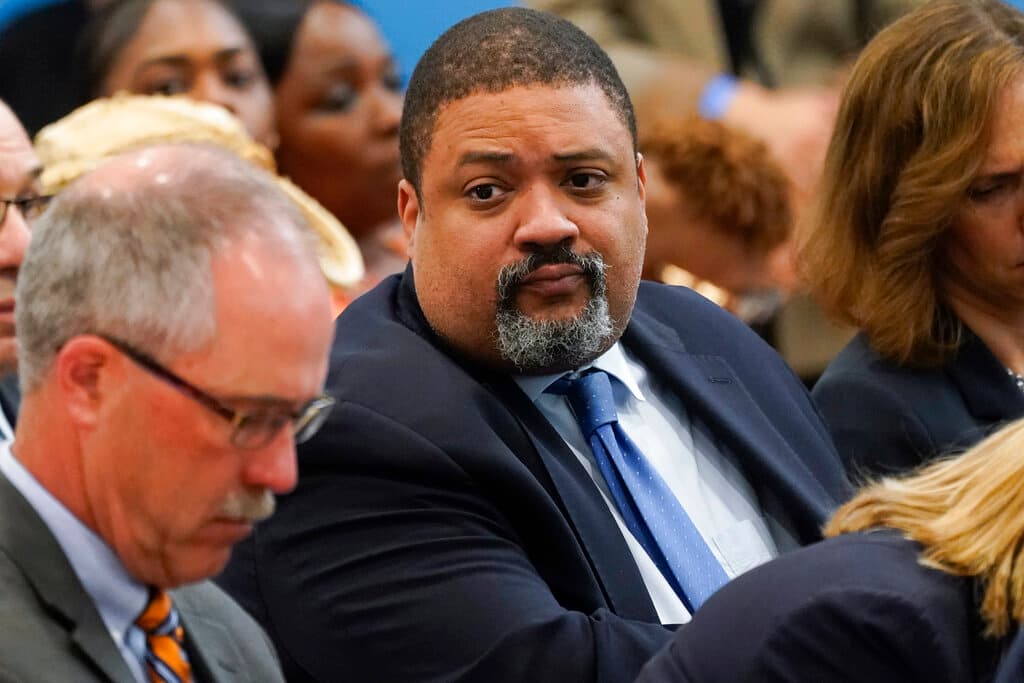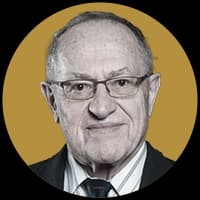Indicting Trump Would Be Targeted Injustice
Does anyone actually believe that if someone else were accused of paying hush money to avoid a sex scandal in the manner that Mr. Trump is suspected of doing, he would be prosecuted?

When I was coming of age in the 1950s Southern prosecutors would target civil rights workers and search for any possible violation of the law, no matter how technical. If they discovered or invented a violation, they would indict, prosecute, convict and sentence the target.
Often the violation would be of an obscure statute that had never before been deployed. To paraphrase the late Justice Robert Jackson, these anachronistic statutes and precedents lie around “like loaded weapons“ ready to be selectively enforced against political enemies.
That, precisely, is what we are now seeing with the Manhattan district attorney, Alvin Bragg, targeting the former president and current candidate, Donald Trump. Does anyone actually believe that if someone else were accused of paying hush money to avoid a sex scandal in the manner that Mr. Trump is suspected of doing, he would be prosecuted?
After spending months searching the criminal code for a law that Mr. Trump might be accused of violating, Mr. Bragg has apparently landed on a highly questionable campaign contribution provision that has never before been used in a comparable situation.
As Jackson also presciently observed: “With the law books filled with a great assortment of crimes, a prosecutor stands a fair chance of finding at least a technical violation of some act on the part of almost anyone.”
He added: “In such a case, it is not a question of discovering the commission of a crime and then looking for the man who has committed it, it is a question of picking the man and then searching the law books, or putting investigators to work, to pin some offense on him.”
Not to compare Mr. Bragg’s NYC to Stalin’s Soviet Union, a sordid episode from the past does come to mind: the notorious head of the KGB, Lavrentiy Beria, once said to Stalin: “show me the man, and I will find you the crime.” Closer to home, J. Edgar Hoover would often target his political enemies for investigation. Or as a South American dictator once threatened: “for my friends everything; for my enemies the law.“
All decent people, whether politically opposed to Mr. Trump (as I am) or supportive of his candidacy, should be concerned about this weaponizing of the prosecutor’s office for the political purpose of preventing a potential candidate from running for office.
Today this insidious tactic is being used by a Democratic prosecutor against a Republican candidate. In 2016, efforts were made to use it against the Democratic candidate. No one knows who tomorrow’s target will be, since the precedent will ”lie around like a loaded weapon,” to be misused by any ambitious prosecutor in a partisan manner.
It is no answer to say, as supporters of this “get Trump” tactic are arguing, that Mr. Bragg is doing nothing more than fully enforcing the law on the ground that no one is “above” it. If Mr. Trump or anyone else did the crime, they should do the time. But others have done things similarly to what Mr. Trump is suspected of doing, and no else is being threatened with prosecution.
It is in the nature of partisan selective prosecution that a target may well be technically guilty of some violation. The question is would he have been prosecuted for that violation if he were not the political target.
The Bible sets out two prohibitions for judges. The most obvious one is “do not take bribes.” Interestingly, that comes second in the list of prohibitions. The first is “do not recognize faces,” which means that justice should never be done based on who the defendant is. Mr. Bragg has not only recognized the face of Mr. Trump, he has targeted him specifically for selective investigation and prosecution.
The law does not generally recognize selective prosecution as a defense to a charged crime. It should. But even if it doesn’t, prosecutorial ethics should deter honest prosecutors from recognizing faces. Mr. Trump should not be indicted for novel and unprecedented technical crimes for which no one else would be prosecuted.
Equal protection of the law requires equal application and non-application of criminal statutes. Mr. Bragg would be violating that important principle if he seeks a grand jury indictment based on what now appears to be the slim evidence and even slimmer legal basis.

